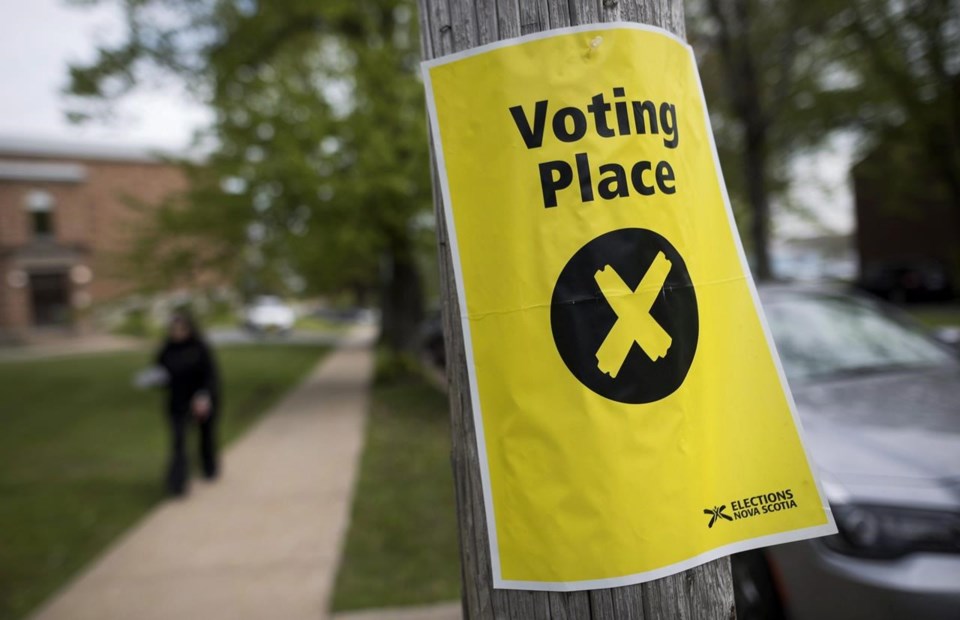HALIFAX — Advance voters in an upcoming Nova Scotia byelection will be the first in Canada to use electronic ballots, provincial election officials say.
Elections Nova Scotia said Wednesday that voters in the provincial riding of Preston will be able to cast early in-person ballots using an electronic system in the byelection, which is yet to be called by the Progressive Conservative government.
Assistant chief electoral officer Lindsay Rodenkirchen said the secure system developed by her agency will allow voters to choose a candidate on an electronic tablet in the polling station rather than marking a paper ballot.
“The Preston byelection will be the first use of e-balloting in Canada,” Rodenkirchen said. “We are confident in the integrity of this innovative voting method.”
She said the system’s security features were designed in consultation with security experts, and added that threat risk assessments were also carried out on the system.
The tablet will verify the voter’s choice before producing a paper receipt to be placed in a ballot box. Rodenkirchen said the vote will be registered electronically and the paper receipt will only be used in the event of a recount conducted by hand.
“While it (e-balloting) does use the internet to securely transmit digital votes to our secure servers, it cannot be used for unsupervised (internet) voting,” she said. “We have created an infrastructure for an isolated system, so that it isn’t visible through public means.”
The system is meant to allow officials to count advance votes within minutes, instead of hours, on election day, Rodenkirchen said. As an example, she said hand counting of the early vote in the 2017 provincial election continued until 2:30 a.m.
“We knew that digitizing the votes was going to be the best way to ensure results were produced in a more timely manner,” she said.
The Nova Scotia government made amendments to the province’s Elections Act in 2021 to permit the use of e-ballots and internet voting, initially by members of the Canadian Armed Forces stationed outside the province.
Elections Nova Scotia said it is planning to use internet voting in the 2025 provincial general election, but only for military members stationed outside the province. The e-ballot system used in the Preston byelection won't be ready for provincewide deployment in 2025.
“We will eventually be rolling out technology on election day, it’s just not going to be for the next general election,” Rodenkirchen said. “Piloting our e-ballot system and using it in our byelections is one way to see what’s possible for the future.”
The Preston riding became vacant April 1 following the resignation of Liberal member Angela Simmonds, and a byelection must be called within six months of the vacancy.
Simmonds was elected in the August 2021 general election and last year lost to Zach Churchill when she ran for the leadership of the Opposition Liberals.
This report by The Canadian Press was first published April 26, 2023.
Keith Doucette, The Canadian Press



